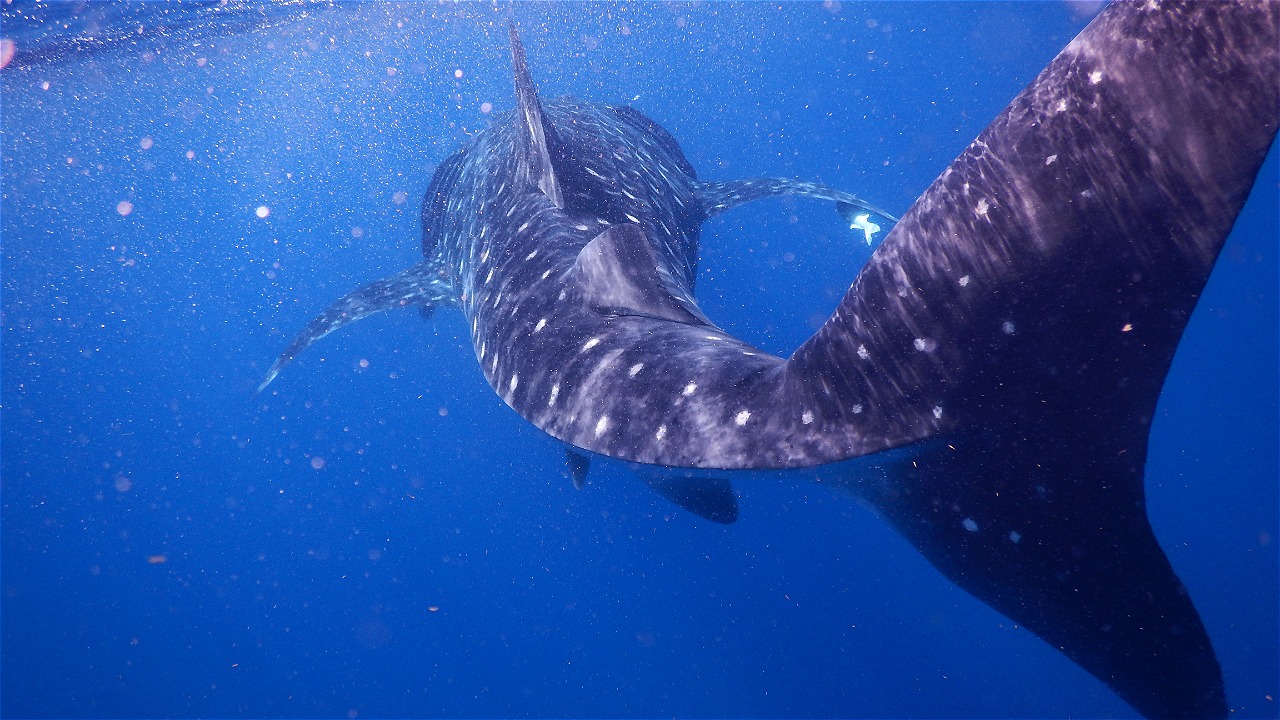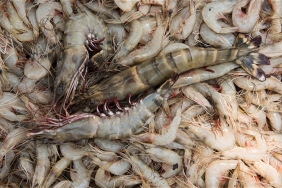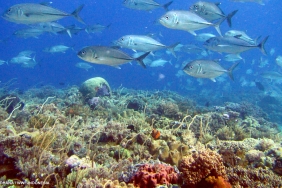SHARKS HOLD ON FOR DEAR LIFE
"The sun, moon, and stars might have disappeared years ago... if only they had been within reach of the predator, man." wrote Havelock Ellis in his theater piece The Dance of Life (1923).
Since the beginning of human civilization, nature has provided everything for survival. In the past, it was said that those who settled on the coast of the sea met their needs only by receiving everything that was blown from the sea to the coast. Equipped with reason and intelligence, humans began to be able to utilize everything the sea had to offer beyond the reach of their hands to survive.
Man's appetite for life's necessities evolved, perhaps too quickly for nature to keep up. The Hallibut of the South Atlantic Ocean, for example, was once a favorite of Europeans in the 18th century. But less than 20 years later, Pauly and Maclean in their paper titled In a Perfect Ocean: The State of Fisheries and Ecosystems in the North Atlantic Ocean stated that the population of this species in its natural environment has been depleted and has not been able to recover until now.
The fast-paced, dynamic market for marine protein has boosted economies around the world, but the consequences are fixed and predictable. Bluefin tuna, cod, and several other marine species are facing the same fate. Can we not foresee the consequences of the rampant exploitation of sharks for human appetite?
The fulfillment of human needs essentially refers to the ability to survive. We only consume what our bodies need. But when this shift in behavior turns to a show of strength and power over all the resources that nature has to offer, then humans have turned into the cruelest killing machines.
Sharks, which have a role as apex predators in the ocean and are tasked with maintaining the stability of the ecosystem, are starting to fall prey to the fulfillment of the prestige of the main predator, humans. Despite the cruel image of humans cutting off fins and throwing them overboard to die, the shark's ability to regenerate is no match for the pride humans take in tasting this guardian of the sea.
The Food and Agriculture Organization (FAO) in 2010 confirmed that from 2000 to 2008, Indonesia was the largest shark contributor with more than 100,000 tons per year. In 1996, WWF recorded 15 species of sharks as threatened, and by 2010 the number had increased to 180 species. This decline is due to the fact that most sharks reproduce ovoviviparously and produce only a few pups each cycle. With such high levels of hunting pressure on sharks, Indonesia's shark population is on the edge.
The Food and Drug Administration (FDA), a US health agency, found that one in three shark samples studied contained mercury levels that exceeded the safe threshold for humans. There is no doubt that consuming this species increases the risk of dangerous heavy metal poisoning. The Food and Drug Administration (FDA) Bulletin 2009 states the health hazards of mercury contamination with shark having the highest mercury content at 1-4 ppm. Mercury contaminants that enter the human body will mostly be deposited in the kidneys and can cause damage to the central nervous system, kidneys and liver.
Various scientific studies have also explained that this species has a much more important role for food security and the economy, if it is protected in the wild. Instead of being served up in mythical health-promoting culinary dishes, sharks would provide far greater benefits to humans alive. Unfortunately, complacency and unfounded assumptions still trump the dangerous facts contained in every part of a shark. As a result, all types of sharks continue to be targeted and traded even under the pretext of bycatch.
Concerns about witnessing the extinction of this important species have united voices for concrete action to protect sharks from all threats. In recent years, campaigns with all elements of society to stop all forms of promotion, consumption and sale of shark products continue to provide hope for sharks to survive.
Government support at national and international levels has also led to new victories in safeguarding shark populations. However, despite all the historic progress that has been made, it is up to the consumer to restore the shark's status as a predator in the sea.
Given that all the resources on this earth will not be able to fulfill human appetite, we must be wiser and more responsible in choosing what is served on our table. The intelligence of today's consumer is challenged to control the reach of his hand from an appetite that is simply a show of power. It is the consumer who has the greatest power to more critically choose and sort out what is consumed as a reflection of who he is. Start to #BuyTheGood in order to create a better future.
Author: Dwi Aryo Tjiptohandono - Marine & Fisheries Campaign Coordinator




